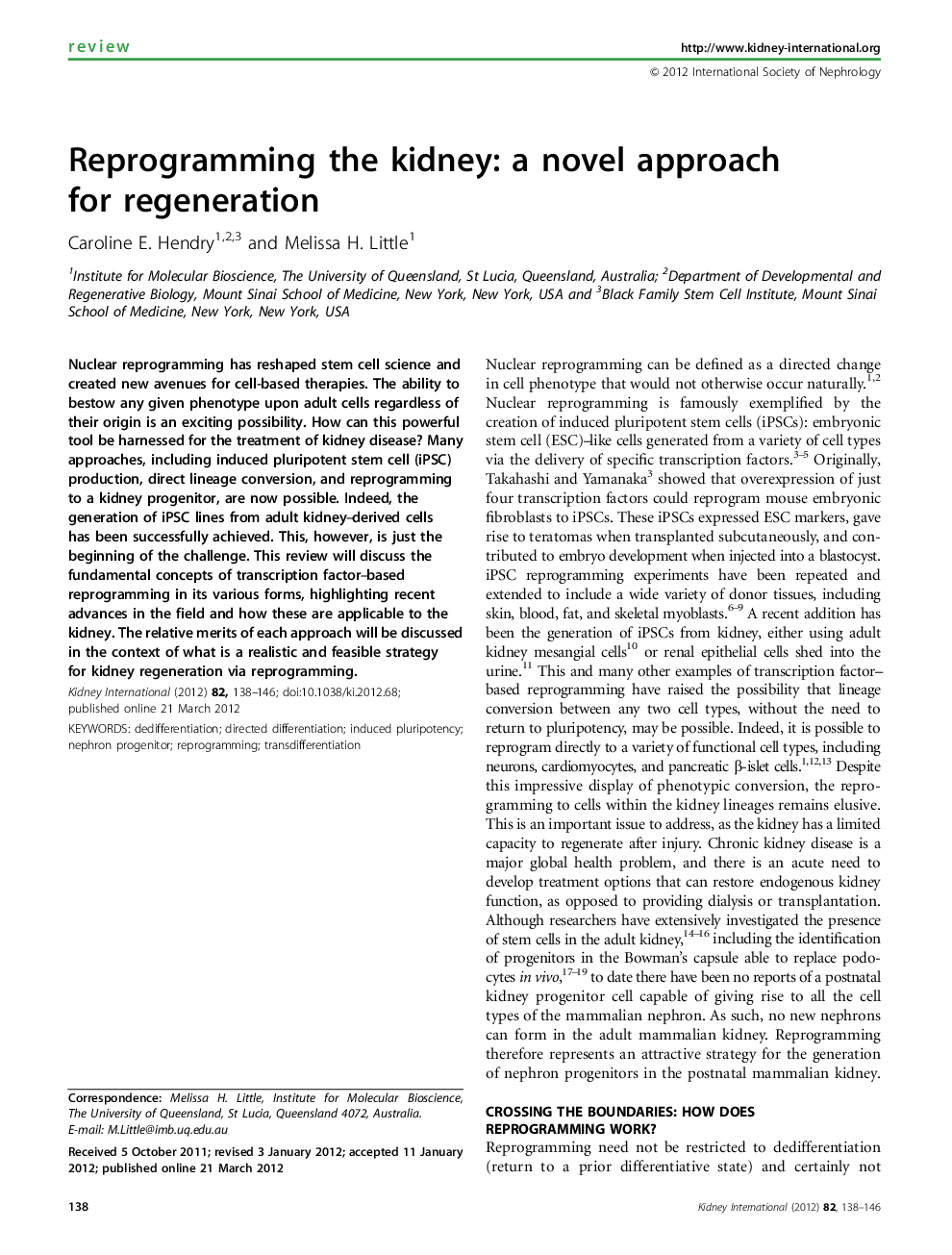| Article ID | Journal | Published Year | Pages | File Type |
|---|---|---|---|---|
| 6162580 | Kidney International | 2012 | 9 Pages |
Nuclear reprogramming has reshaped stem cell science and created new avenues for cell-based therapies. The ability to bestow any given phenotype upon adult cells regardless of their origin is an exciting possibility. How can this powerful tool be harnessed for the treatment of kidney disease? Many approaches, including induced pluripotent stem cell (iPSC) production, direct lineage conversion, and reprogramming to a kidney progenitor, are now possible. Indeed, the generation of iPSC lines from adult kidney-derived cells has been successfully achieved. This, however, is just the beginning of the challenge. This review will discuss the fundamental concepts of transcription factor-based reprogramming in its various forms, highlighting recent advances in the field and how these are applicable to the kidney. The relative merits of each approach will be discussed in the context of what is a realistic and feasible strategy for kidney regeneration via reprogramming.
